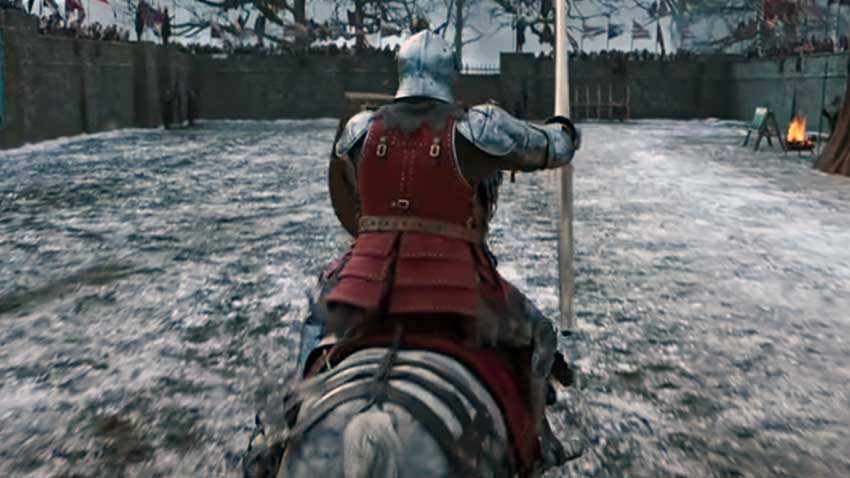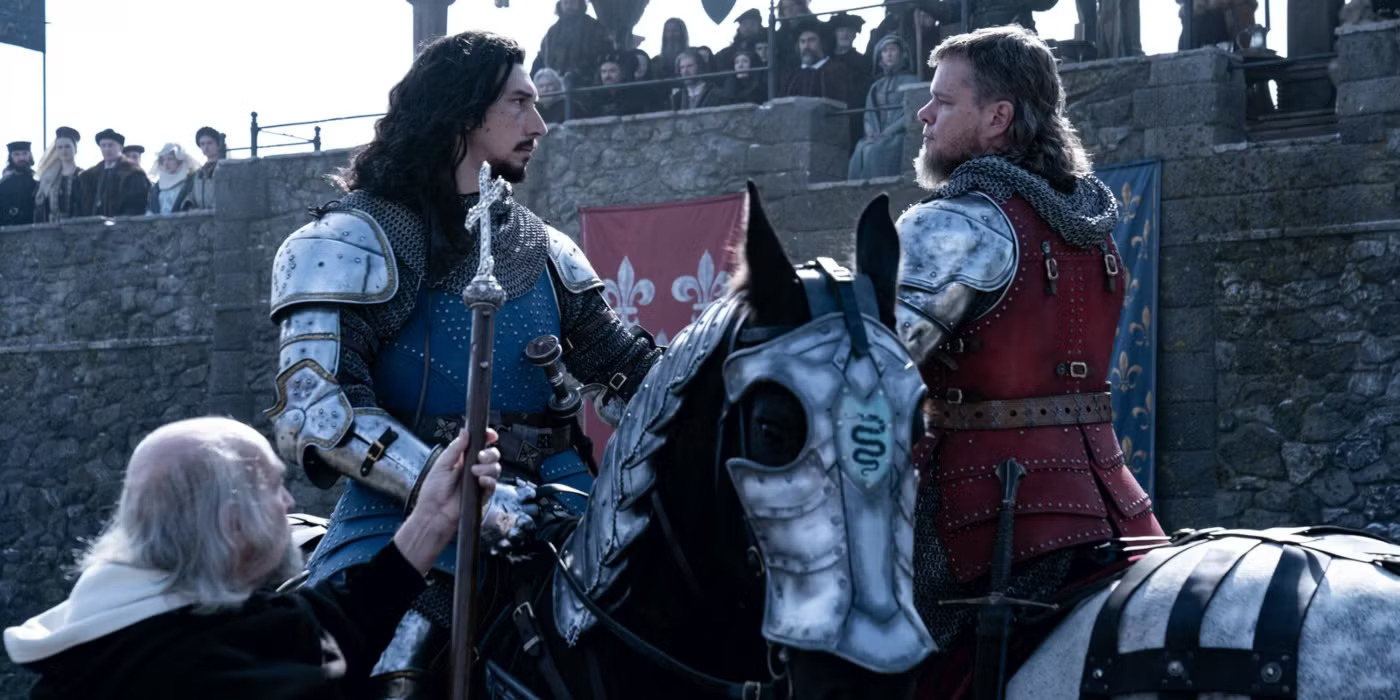The Last Duel (2021) is a historical epic directed by Ridley Scott, based on Eric Jager’s book The Last Duel: A Story of Trial by Combat in Medieval France. The film is rooted in true events and aims for historical accuracy, depicting medieval customs and societal norms. The story unfolds through three distinct perspectives—those of Jean de Carrouges, Jacques le Gris, and Marguerite de Carrouges—offering a complex narrative structure that leads to a dramatic and thought-provoking conclusion.
The initial conflict in the film revolves around land ownership, which becomes a significant point of contention between Jean de Carrouges and Jacques le Gris. De Carrouges believes he has a rightful claim to the estate of Aunou-le-Faucon as part of Marguerite’s dowry. However, the land was given to le Gris by Count Pierre as a settlement for Marguerite’s father’s debts. This legal yet ethically questionable decision enrages de Carrouges, who sees himself as a man of honor. His financial struggles and personal frustrations further fuel his animosity toward le Gris.
One of the film’s most striking moments is when Marguerite’s accusation of rape against le Gris is met with skepticism by the court. In 14th-century France, rape was not viewed as a crime against the woman but as a violation of her husband’s property rights. The prevailing belief that a woman must enjoy intercourse to conceive further complicated Marguerite’s case, as she later became pregnant. These societal attitudes highlight the systemic misogyny of the era and resonate with modern discussions on victim-blaming and justice.

Medieval Justice and Marguerite’s Courage in The Last Duel’s Climactic Battle
The film accurately portrays the consequences of losing a judicial duel in medieval times. After being defeated by de Carrouges, le Gris’ body is stripped, dragged through the town square, and hung upside-down. This act, while brutal, was historically accurate and intended to dishonor him posthumously. The practice was based on the belief in iudicium Dei (the judgment of God), where divine intervention was thought to determine guilt. Since le Gris lost, he was deemed guilty in the eyes of the court and the public.
Had de Carrouges lost the duel, Marguerite would have been declared a liar and faced execution by burning. In medieval society, falsely accusing a man of such a crime was seen as a grievous offense, warranting a severe punishment. This underscores the immense risks Marguerite took by speaking out against le Gris. The film effectively highlights how medieval justice systems prioritized male honor over female suffering, reflecting broader themes of gender inequality.
The film concludes with a poignant scene of Marguerite watching over her son, with Jean de Carrouges notably absent. This moment signifies her newfound independence after years of being a pawn in a patriarchal society. The closing title cards reveal that de Carrouges died in battle a few years after the duel and that Marguerite never remarried. This final shot serves as a moment of catharsis, offering a rare glimpse of peace for a woman who endured immense suffering.

Reframing History Through The Last Duel’s Feminist Take on Power and Justice
The Last Duel stands out among medieval epics for its feminist approach to storytelling. Screenwriter Nicole Holofcener emphasized the film’s engagement with themes of sexual violence and misogyny, consulting #MeToo advocacy groups during production. By structuring the narrative to highlight Marguerite’s perspective last, the film subverts traditional male-centric storytelling and amplifies her voice in a way that history often failed to do.
The film’s themes remain relevant today, particularly in the post-#MeToo era, where victims of sexual assault still struggle to be believed. The story highlights how powerful men often escape consequences due to societal biases and legal loopholes. Marguerite’s ordeal mirrors modern cases where survivors face scrutiny and disbelief, reinforcing the ongoing fight for justice and gender equality.
The Last Duel received strong reviews, with critics praising its performances, historical accuracy, and thematic depth. The titular duel, in particular, was highlighted as a gripping and brutal sequence. While some critics found the messaging heavy-handed, the majority lauded the film’s commitment to shedding light on historical injustices through a modern lens. The film’s structure, which showcases different perspectives, was also praised for its ability to challenge the audience’s perception of truth and bias.
Ultimately, The Last Duel is a thought-provoking and visually stunning film that delivers a powerful commentary on gender, power, and justice. By giving Marguerite a voice and highlighting the societal constraints imposed on her, the film challenges the glorified portrayals of medieval history often seen in cinema. It stands as an important reminder of how historical narratives can be reframed to reflect both past and present struggles for equality and justice.



